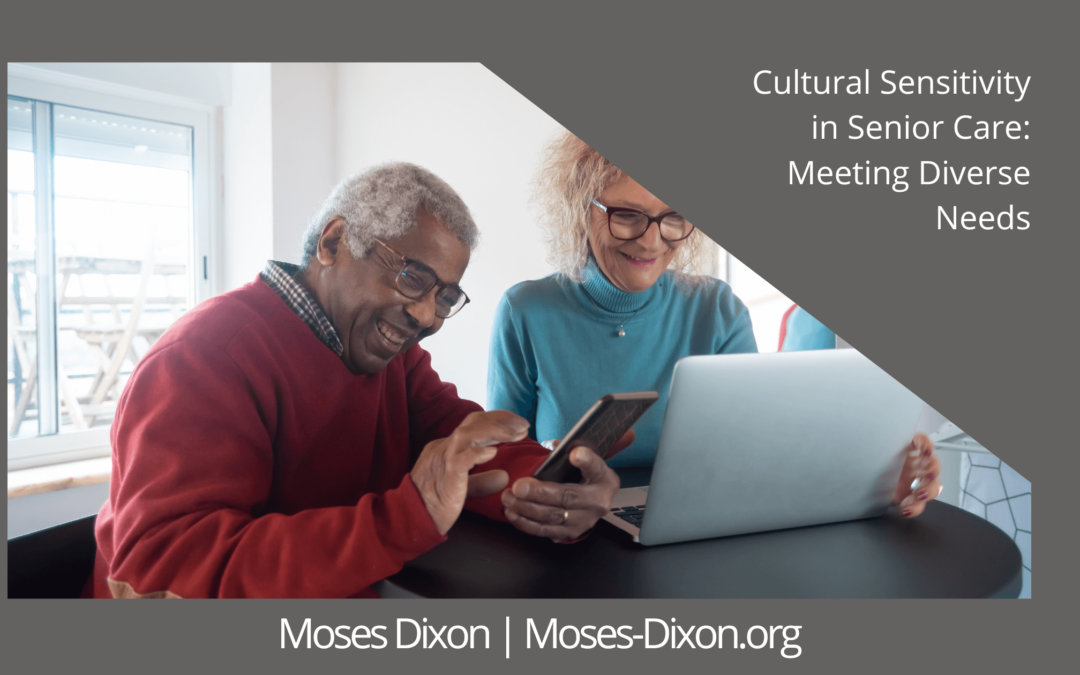Senior care is evolving, and so too are the diverse needs of the elderly population. Cultural sensitivity in senior care is a crucial aspect that cannot be overlooked. As the world becomes more interconnected, senior care facilities must adapt to the growing diversity among their residents. Understanding and respecting cultural differences is ethical and essential for providing high-quality care. In this blog, we explore the importance of cultural sensitivity in senior care and how facilities can ensure they meet the various needs of their residents.
The Changing Face of Senior Care:
Senior care facilities are no longer homogeneous environments. The older population is increasingly diverse, encompassing individuals from various ethnic, religious, and cultural backgrounds. Recognizing this diversity is the first step toward creating an inclusive and welcoming environment for seniors. By acknowledging and respecting cultural differences, senior care providers can make their services meet each resident’s unique needs.
Language and Communication:
Effective communication is the basis of quality senior care. Many seniors may face language barriers due to differences in their native languages. Facilities must ensure that staff members are proficient in the languages spoken by their residents or provide access to interpreters. Communication is not just about language; it also involves understanding non-verbal cues, traditions, and expressions unique to different cultures.
Cultural Competence Training:
Senior care facilities should invest in cultural competence training to foster cultural sensitivity among staff members. This training equips caregivers with the knowledge and skills to navigate cultural differences and provide personalized care. Understanding the significance of cultural practices, beliefs, and values enables caregivers to offer respectful and considerate services of each resident’s cultural background.
Respecting Dietary Preferences:
Cuisine plays a significant role in cultural identity, and dietary preferences vary widely among seniors from different backgrounds. Senior care facilities should strive to offer diverse menus that accommodate various dietary restrictions and preferences. Whether providing halal, kosher, vegetarian, or culturally specific meals, respecting and incorporating residents’ dietary choices fosters a sense of belonging and comfort.
Celebrating Cultural Festivals and Traditions:
Cultural sensitivity goes beyond daily routines; it extends to recognizing and celebrating important cultural festivals and traditions. Senior care facilities can organize events and activities that reflect the diversity of their residents. Whether it’s Diwali, Hanukkah, Lunar New Year, or other cultural celebrations, incorporating these events into the facility’s calendar creates a sense of community and shared joy.
Creating Inclusive Spaces:
Designing senior care facilities with cultural sensitivity in mind is crucial. Spaces should be inclusive, accommodating the unique needs of residents from various backgrounds. This includes considerations such as prayer rooms, multi-faith chapels, and areas for cultural activities. Ensuring that the physical environment is culturally welcoming contributes to the overall well-being of residents.
In the ever-evolving landscape of senior care, cultural sensitivity is not an option but a necessity. Meeting the diverse needs of elderly individuals requires a commitment to understanding, respecting, and embracing cultural differences. By investing in cultural competence training, providing diverse menus, and celebrating cultural traditions, senior care facilities can create environments that put the well-being of every resident first. As the senior care industry evolves, it is essential to foster an atmosphere where cultural sensitivity is not just a practice but a fundamental aspect of compassionate and comprehensive care.
